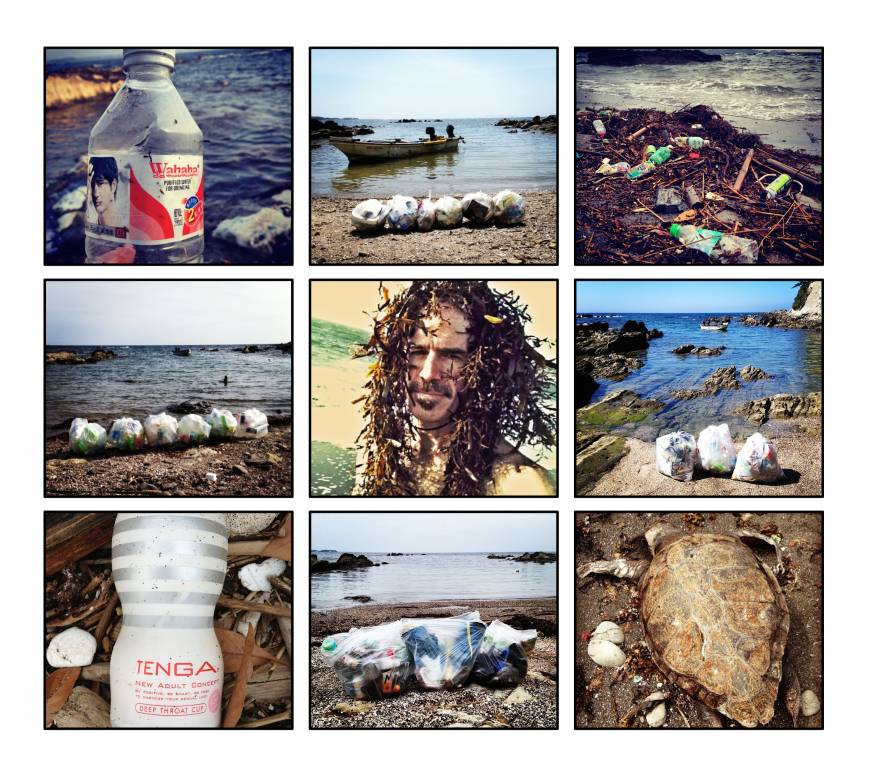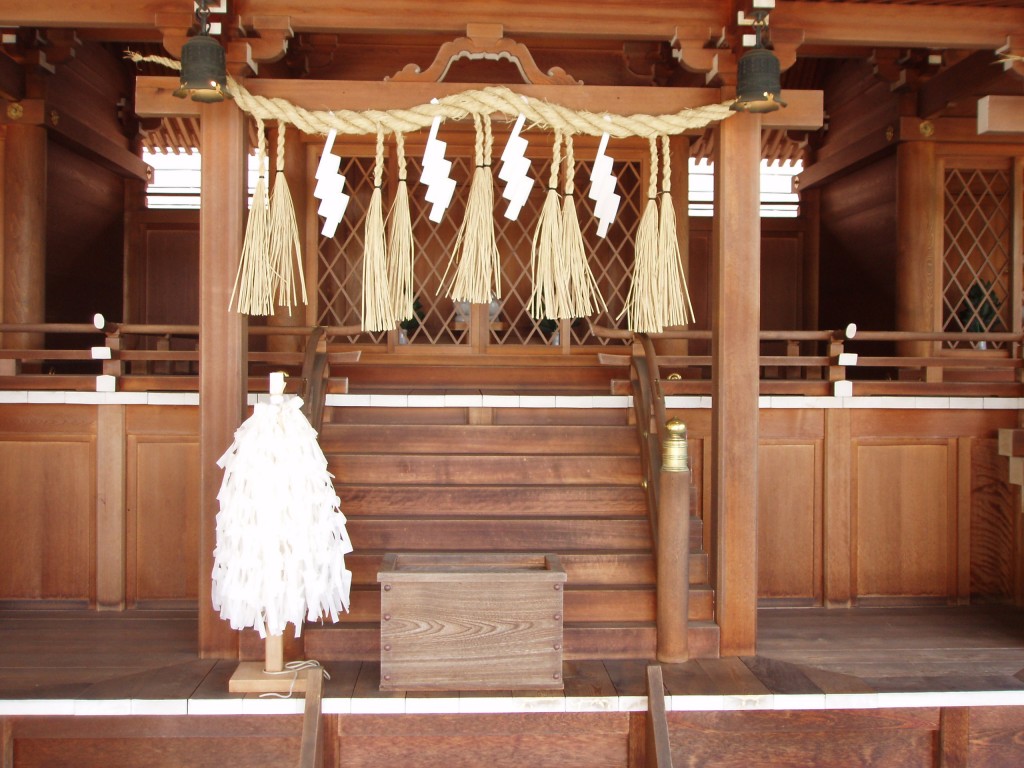
When nature is as beautiful as this, who would want to leave their rubbish on the beach?
You wouldn’t think litter has much to do with Shinto. Indeed you might suppose a religion based on purity would lead to a culture that is vehemently opposed to littering. And so it seems to the hundreds of thousands of visitors to Japan each year who come away amazed by the spotlessness of the city streets.
But a letter today in The Japan Times raises the very real issue of the contrast between clean streets and the desecration of nature by wanton dumping and littering. For those of us who live here, it’s a striking phenomenon. “If the Japanese are so clean, why is there so much crap on my beach?” asks an outraged Roberto De Vido. (For the full article, see here.)

Beach gomi (courtesy Roberto De Vido)
Roberto lives near a beach and is concerned about the extraordinary amount of rubbish dumped there. He has taken action to clean it up and prevent it. And through personal experience, he has come to the conclusion that while Japanese feel ashamed to litter streets in full view of others, they have no such scruples when it comes to being in isolated places where the eyes of others are not upon them.
I too have often wondered about the contrast between clean streets and the unwarranted dumping of rubbish and domestic items in rivers or the countryside.
Previously I ascribed it to the ‘uchi-soto‘ (inside-outside) nature of Japanese culture. You don’t despoil your own surrounds, but you can do as you like in places unconnected to you. Such as nature. (The idea helps explain too the WW2 syndrome of an essentially kind and considerate people inflicting horrific cruelty on ‘the other’.)
Roberto De Vido however makes a strong case for ‘shame’ as the motivating criterion. It makes good sense. It was a central concept of Ruth Benedict’s influential book, and Lafcadio Hearn said much the same thing in Japan: An Attempt at Interpretation.
Endo Shusaku gets at a similar point in one of his short stories where he considers how Japanese soldiers could have indulged in vivisection and cannibalism in the Second World War. His writing was inspired by the notion that because of the Confucian sense of the collective, Japanese were likely to be motivated by situational rather than absolute ethics. (Endo of course was a Catholic, and had a point to prove.)
There is a link to Shinto here, which refrains from matters of morality. There is no dogma, no precepts written down in stone. Nature is a force for destruction as well as creation. Kami get angry. War criminals are venerated at Yasukuni. What matters is the endless cycle of renewal, not whether it’s morally good or bad.
If Roberto is right in his thesis, as I believe he is, it behooves the rest of us to speak out and shame those engaging in unacceptable behaviour, whether it be littering, sexual harassment or cruelty to animals. Just because we are ‘outsiders’ does not mean we should be invisible. Indeed, ‘gaiatsu‘ (outside pressure) can be all the more effective because of the stigma of losing face.
Thumbs up to Roberto for taking action to save the cleanliness of his beach. Purity may be a vital part of Shinto, but it seems shame may be even more fundamental to the culture.

Shinto teaches purity, but away from the eyes of the kami its precepts may not always be followed

I don’t know, I see an awful lot of littering in action. I’m not sure there’s as much of the element of shame these days that you describe.
I’m afraid I’m rather obnoxious when it comes to litterbugs. Fairly often I see someone nonchalantly drop some trash on the street. I always pick it up, tap them on the shoulder, and hand it back to them, saying “Wasuremono wo shinai you ni”– “You forgot something”. One time it turned out to be somebody I knew! I didn’t realize it until they turned around. At least they were suitably embarrassed.
Once, I didn’t actually have the guts to tap on the guy’s shoulder. This is because the litter was a condom wrapper– which I certainly didn’t realize until I picked it up. At least it was unopened. I don’t know, maybe he dropped it by mistake. Still, I decided that even for me, there was a limit to how much shame I will inflict on a litterbug.
ha, thanks for the input, Quin. I always feel inhibited about telling people to pick up their litter. The last time I did it was to two teenage girls in Britain who turned round with a mouthful of invective, which certainly didn’t endear me to them. Fortunately for us, Japanese are unlikely to react with such hostility – perhaps it’s even a way of making new friends!
Sorry, a bit off topic – The last photo shows a haraegushi next to a saisen. I was told that it is for shrine visitors to purify themselves just like a priest would – waving it over themselves three times. Have you heard of this? Why would a haraegushi be out in the open like that?
Hi Ryan, thanks for the interesting question. In fact, there are several places where self-purification is encouraged, and haraegushi are specifically left out at shrines for that purpose. One large shrine where I can remember this being the case is Omiwa Jinja, where a haraegushi is placed to the side of the haiden.